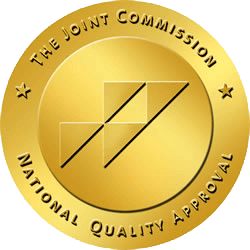Teen years are filled with exploration. It’s a time to learn about their identity, consider their beliefs, and begin planning for adulthood. And sometimes, teens decide to take chances and push the boundaries in their lives. However, when pushing boundaries means your teen is abusing drugs, it is time to take action. It is essential to stay informed about your teen’s activities. If you realize that the young adult in your life is using drugs, it is time to contact a teen drug addiction treatment program.
Why Do Teens Choose To Use Drugs?
Often, teens begin using drugs to experiment. However, when teens do not realize the long-term risks associated with drugs, they often use because:
- They want to forget an emotionally triggering feeling
- Allow them to relax and feel less pain
- Experiment with a new substance and, in the process, satisfy any curiosity
- Feel like an adult and feel independent
What began as experimentation may lead to long-term addiction and life-long struggle.
What Are Commonly Abused Drugs?
There are many types of drugs that teens use. Some of the most common drugs include marijuana, prescription drugs such as Adderall, Vicodin, and Oxycontin; household cleaners; hallucinogens such as acid; opioids such as heroin, codeine, or morphine; and benzodiazepines such as Valium or Xanax. The drugs teens use may have different effects when they are actively using. However, they all have the power to be addictive. Therefore, adults must monitor their teens’ behavior to help them make smart decisions. Here are some of the consequences of commonly abused drugs that teens could suffer as a result of long-term use:
- Marijuana can lead to memory loss, paranoia, psychosis, and learning problems
- Methamphetamine users often exhibit psychotic behavior
- Inhalants can damage a teen’s heart, lungs, liver, kidneys, and brain
- Cocaine use can lead to a heart attack, stroke, or seizures
- Ecstasy can cause heart and liver failure
- Opioids can decrease your heart and breathing rate, leading to respiratory distress. It can also lead to an overdose.
Signs of Teen Drug Use
It is not uncommon for adults to believe that they might be overreacting if they suspect their teen is using drugs. However, there are always clear signs that your teen is abusing drugs:
- Significant changes in their eating
- Fluctuating sleeping patterns–some will sleep for long periods of time while others will be insomniacs
- Changes in behavior such as being depressed, withdrawing from others, anger, and appearing anxious
- Conflict with family members and peers
- New groups of friends that abuse drugs
- Poor grades and high school absenteeism
- No interest in previous hobbies and/or activities
- Behaviors such as stealing and lying–often resulting in legal problems
- Appearing disheveled
If you recognize any of the above signs of teen drug use, you must seek the help of an addiction specialist.
Destinations for Teens Will Help Your Teen Fight Their Addiction
Drugs teens use are so powerful that they can change their lives. There are so many commonly abused drugs available to teens that it may often seem like you have no power as a parent. However, you can always support your teen. It is easy for teens to believe that experimenting with drugs will not have long-lasting effects. They often feel pressured to try drugs based on their friends, who are also pushing the boundaries in their young lives. However, you should never ignore these behaviors. Instead, speak to your teen about their substance use disorder. And then begin seeking professional help. An addiction treatment program does more than help stop teen drug use.
- Individual Therapy so that teens can learn their triggers related to drug use and learn positive coping mechanisms
- Group Therapy opportunities present teens with the chance to meet others with similar experiences and create strong bonds that can last through recovery.
- Activity-Based Therapy such as art, music, photography, dance, and yoga
- Family Therapy to restore relationships that have become fractured as a result of drug use
Destinations For Teens is present to guide your teen through the addiction recovery process. For more information about our programs and services, reach out at 877.466.0620.


